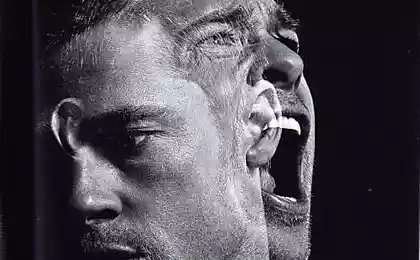90
10 situations in which the true face of a person can manifest

Imagine a theater where an endless play called Life is played every day. There are billions of actors on stage, each of whom plays a role with varying success. But what happens when the script suddenly changes and the prompter goes silent? It is at these moments that the masks fall, and we see the real face of the person – not the one he carefully constructs for the public, but the true essence behind the facade of social conventions.
Character is not a collection of beautiful words on a resume or social network profile. This is a deep program that is activated at critical moments, when there is no time to think about the reaction. Psychologists call this authentic behavior—reactions that come from the very essence of the individual, bypassing the filters of social approval.
Anatomy of Critical Moments
Research in behavioral psychology shows that in stressful situations, the ancient limbic system of the brain, which is responsible for instinctive responses, is activated. That is why a person who has been exhibiting exemplary behavior for years can suddenly show completely different qualities when faced with unforeseen circumstances.
1 Moment of truth with defenseless
When an elderly person with a heavy bag or a child drops a toy, what psychologists call an empathic response is triggered. A person with developed emotional intelligence automatically notices someone else’s need for help and reacts to it.
True kindness does not require witnesses; it manifests itself even when no one is watching.
Lifehack: Watch how your friends behave with waiters, cleaners, security guards. Attitudes towards people “lower in status” are one of the most accurate indicators of true character.
2 Fear as a lie detector
Fear is an ancient survival mechanism that instantly turns off social filters. At the moment of danger, a person acts instinctively, and his reaction exposes the basic attitudes of the personality. Someone mobilizes and takes responsibility, someone panics, and someone begins to look for the guilty.
Practical advice: Don’t judge panic reactions harshly – they can be linked to a traumatic experience. But pay attention to those who, in a critical situation, shift the blame to others or simply “disappear.”

3 The Mirror of Others' Success
Reaction to other people's achievements is an X-ray of self-esteem. A self-confident person sincerely rejoices in the successes of others, because he does not perceive them as a threat to his own status. The one who constantly compares himself with others will devalue the victories of others or transfer the conversation to himself.
Envy is a compliment wrapped in discontent.
4 Power as a litmus test
Even a small promotion or new role can dramatically change a person’s behavior. Power acts as an amplifier: it does not change character, but makes it more pronounced. The humble man remains humble, and the hidden tyrant begins to demonstrate his true nature.
It's important to remember: If a person radically changes, having received power, then these qualities were already in him - just before there was no opportunity to show them.
5 Testing for strength: admitting errors
The ability to admit one’s wrongness is an indicator of psychological maturity. A self-aware person realizes that mistakes are a natural part of the learning process. Those who react painfully to criticism often suffer from narcissistic personality traits.
6 Unsolicited criticism as a mirror of the soul
Reaction to unexpected criticism instantly reveals a person’s level of emotional stability. A confident person calmly analyzes feedback, even if it is unpleasant. An insecure person either becomes aggressive or starts making excuses.
The golden rule: Before you criticize, ask, “Are you ready to hear my opinion?” This will show how open a person is to dialogue.
7 Difficulties as a catalyst for the true self
Unexpected problems are a stress test for character. Some people perceive difficulties as a challenge and mobilize all the resources to solve them. Others immediately fall into the position of the victim or begin to look for the guilty. This reaction is formed in childhood and becomes an automatic program of behavior.

8 The temptation of a better offer
Loyalty to this word in a situation where there is a more profitable alternative, shows the hierarchy of human values. For some, reputation and relationships are more important than short-term gain, for others, money and personal gain decide everything.
Character is what you do when no one is looking.
9 Honesty in small things
Reaction to a cashier error or a randomly found wallet is a test of basic ethical attitudes. The person who says “lucky” when overpaid demonstrates a consumer attitude towards the world. He who returns the excess is guided by the principle of justice.
10 Power over weakness
The most accurate test of humanity is behavior in a situation where you can take advantage of someone else’s vulnerability with impunity. It’s not just about material gain, it’s about emotional manipulation, divulging secrets, or exploiting another person’s temporary helplessness.
Red flag: If a person uses your revelations against you or abuses trust during a difficult time for you, this is a serious signal to reconsider the relationship.
How to apply this knowledge in life
Understanding the psychological mechanisms of behavior gives you a powerful tool for building quality relationships. It is not necessary to arrange special "checks" - life itself will provide enough opportunities to see the true face of a person.
Practical recommendations:
• Pay attention to behavior in an informal setting
• Watch how people treat those who cannot benefit them.
• Observe reactions to unexpected situations
• Analyze how a person behaves when they think no one sees them.
True character is not a mask we put on for society, but a deep program that is activated at critical moments. By learning to read these signals, you can better understand people and make more informed decisions in relationships. Remember, we are all imperfect and everyone has the right to make mistakes. But behavior patterns are something worth paying attention to when choosing people for your inner circle.
Glossary of terms
Authentic behavior Natural human reactions that occur without conscious control or filtering by social norms.
limbic system The part of the brain responsible for emotions, instincts and basic reactions to stress.
Empathic response The ability to automatically recognize and respond to another person’s emotional state.
Emotional intelligence The ability to understand and manage one’s emotions and to interact effectively with others’ emotions.
Narcissistic traits Personality features, including high self-esteem, a need for admiration, and a lack of empathy.
Psychological maturity The ability to take responsibility for your actions, learn from mistakes and adapt to change.























